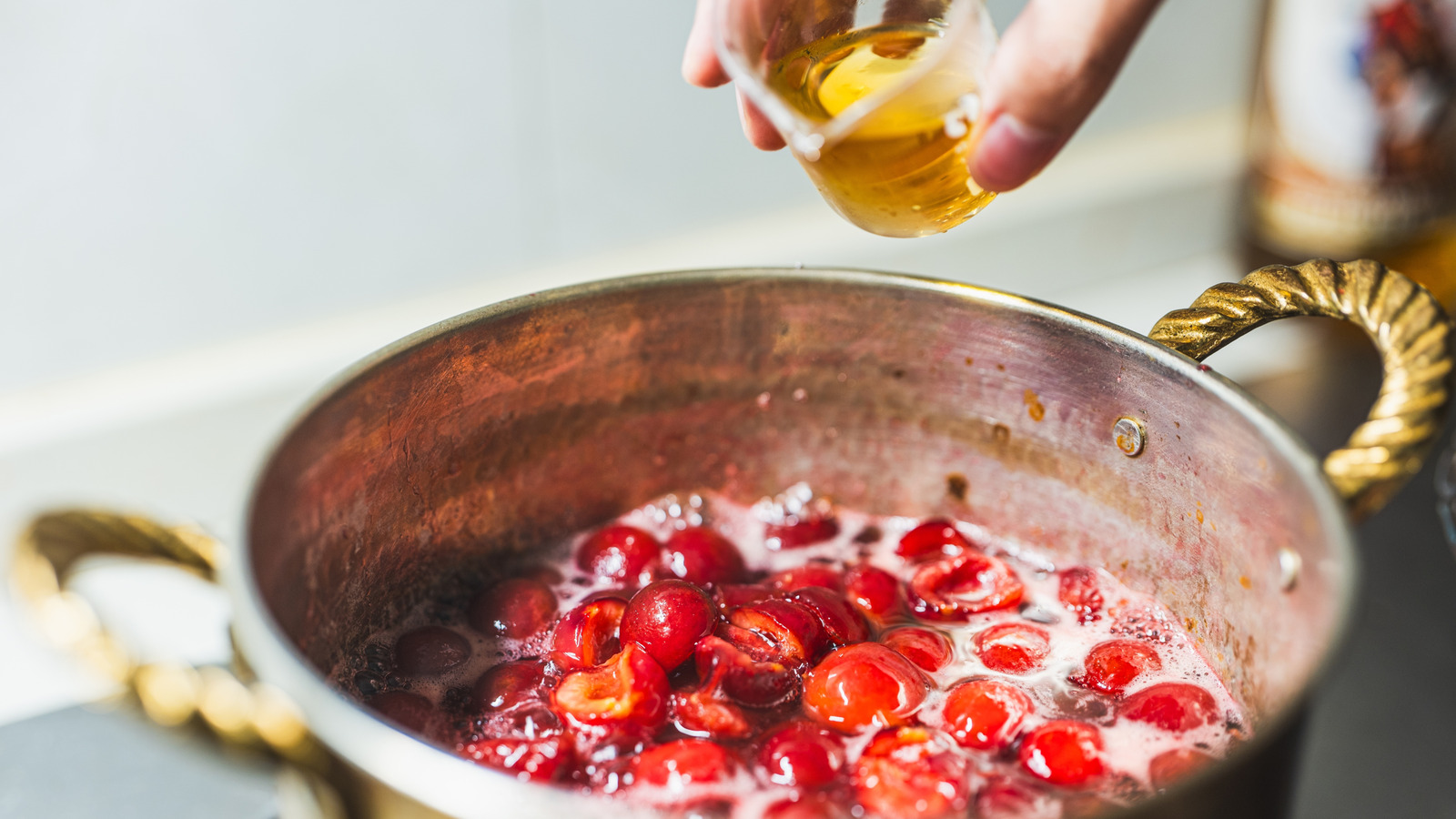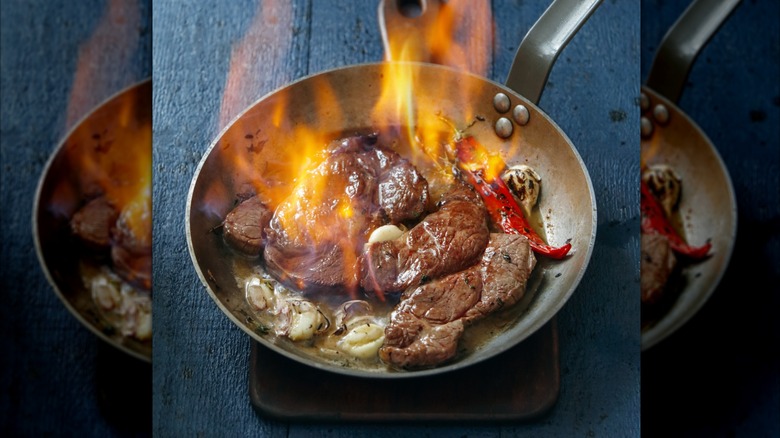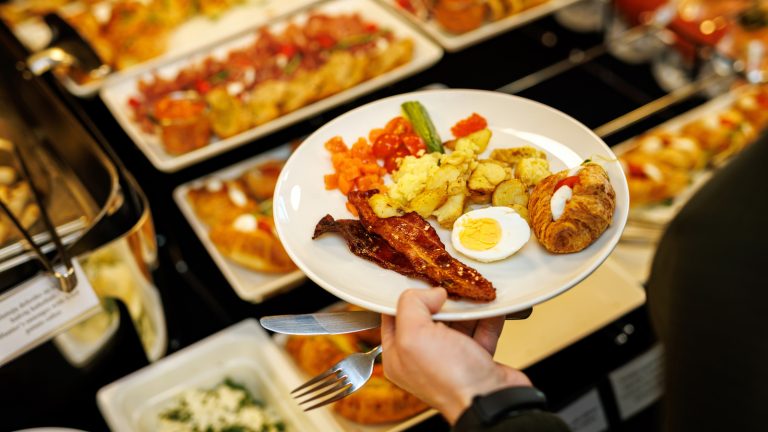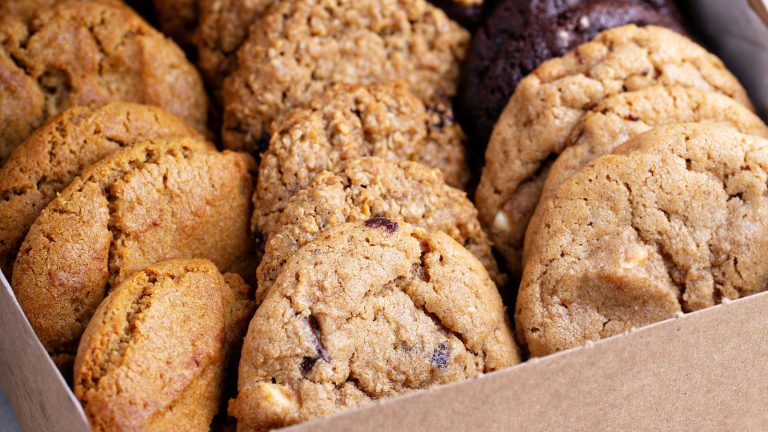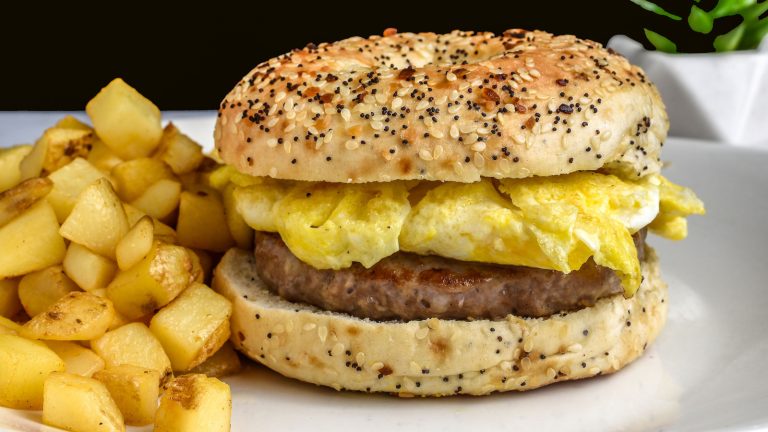Alcohol is used to give a flavorful, if not slightly boozy, touch to everything from an elegant beef bourguignon to a casual beer cheese. And it’s not hard to understand why certain types of alcohol go with certain dishes. The heartiness of beef calls for the bold fruitiness of red wine. The maltiness of beer cuts through the richness of a sharp cheddar. So how do you know what type of whiskey to use when you’re cooking? According to Deena Sayers, beverage director of The Stand, a comedy club and restaurant based in New York, you need to think about the specific dish you’re preparing. As she recently shared exclusively with Chowhound, “Just as with wine, the flavor profile of the whiskey will make an impact with its unique characteristics to the food.”
Bourbon, for example, can go sweet or savory. Sayers says, “It can be great for a glaze used for meats, especially pork or ribs. Or as a sauce in a bread pudding.” That’s why chefs have often added a splash of bourbon to caramelized onions, marinades, and barbecue sauces. Bakers and confectioners consider bourbon and chocolate a match made in heaven. In fact, Graeter’s, the 150-year-old ice cream company, recently partnered with New Riff Distilling to introduce a bourbon-infused ice cream with whiskey-glazed pecans and dark chocolate chips. You can also amplify the flavor of brownies with a splash of bourbon.
Both rye and Scotch pair well with proteins. “Rye has a spicier character and will also work well with robust meat dishes,” Sayers notes. “While the smokiness of Scotch can be used as a great sauce for smoked fish or a marinade for lamb.”
Alcohol does more than add flavor to a dish
In addition to bringing more depth to a dish, the alcohol in whiskey also helps tenderize meat by breaking down the protein, which is one of the reasons why it works so well in marinades. It also helps infuse meat with the flavors of other marinade ingredients. Alcohol provides flavor without adding too much moisture since it largely evaporates while cooking. Finally, because alcohol affixes to fat and water, it can act as a carrier for a variety of flavors.
With each type of whiskey having such different notes, you may be surprised to learn you can swap the different spirits for one another in recipes. Given the sweeter, caramel, and vanilla notes of bourbon, you might want to consider adding a touch more sugar or a teaspoon of vanilla if you use another whiskey, while you may need to enhance bourbon with a few spices when using it in place of rye.
Regardless of which kind you cook with, Deena Sayers recommends choosing a decent-quality whiskey you wouldn’t mind drinking. “While you certainly don’t need to use your most prized single malt for cooking, I generally advise against using the absolute cheapest, bottom-shelf whiskey. The harsh flavors and lower quality of very inexpensive spirits can negatively impact the taste of your dish.” She explains, “As the alcohol cooks off, the underlying flavors of the whiskey will remain, so starting with a better base will yield a more flavorful result.”


